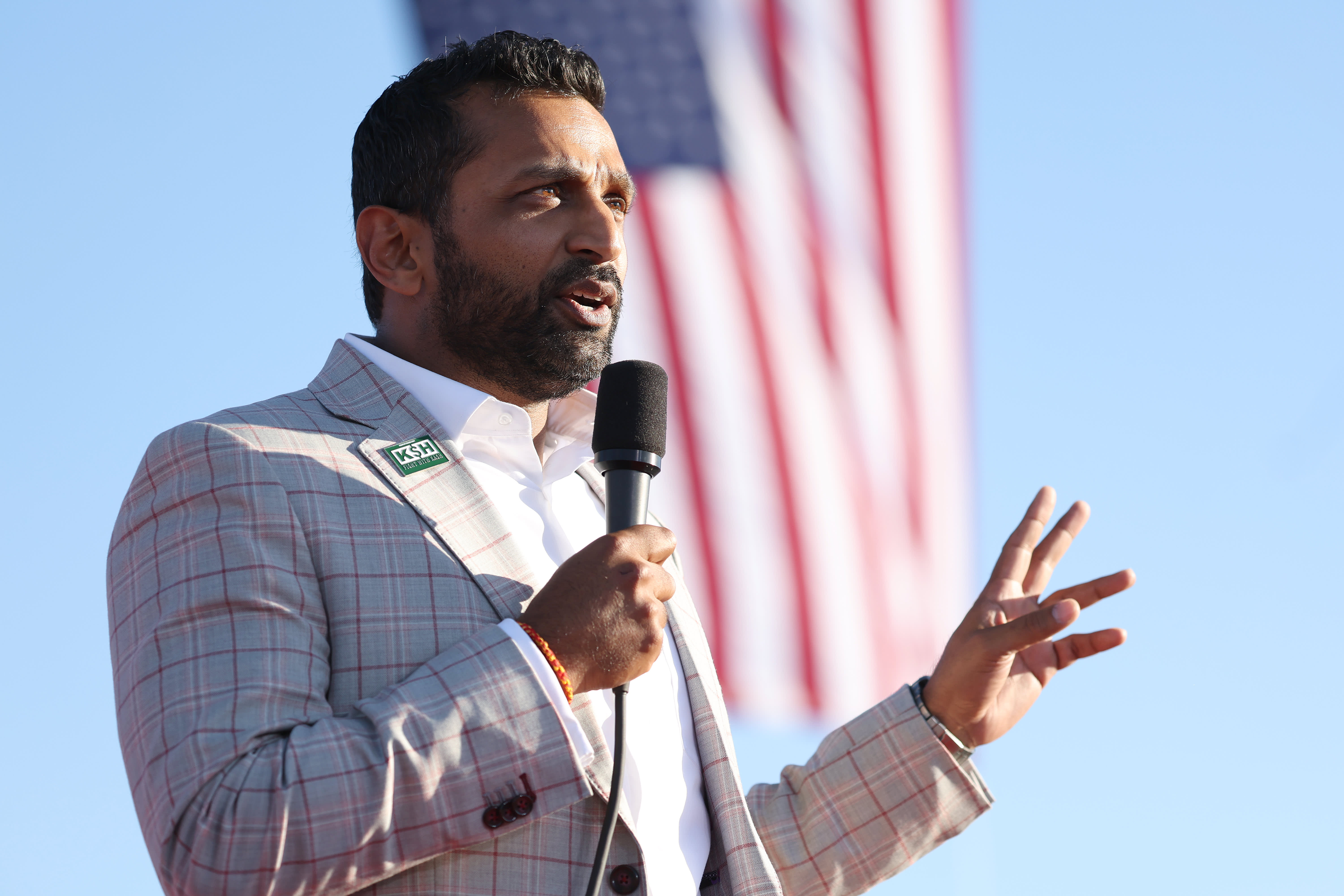The year was 2010 and the Justice Department's prestigious public integrity section was still recovering from a costly debacle over the withholding of exculpatory evidence in a case against Alaska Sen. Ted Stevens.
The crisis had caused then-Attorney General Eric Holder, in a remarkable move, to ask a judge to throw out all convictions against the Republican lawmaker.
In search of a new leader for the unit, the Justice Department turned to a war crimes prosecutor in The Hague who'd cut his teeth in New York prosecuting state and federal crimes, including the brutal beating of a Haitian immigrant by police. Jack Smith told The Associated Press in an interview that year that he'd read about the Stevens case and couldn't resist the chance to step in and run the section.
“I had a dream job and I had no desire to leave it, but opportunities like this don’t come up very often,” Smith said. “I left the dream job for a better one.”
Now, Smith has a new position that, if not necessarily a dream job, nonetheless places him at the center of two of the most significant Justice Department investigations in years. As a newly named special counsel, Smith will be tasked with overseeing probes into the retention of classified documents at former President Donald Trump's Florida estate, Mar-a-Lago, as well as aspects of an investigation into efforts to overturn the 2020 election won by Democrat Joe Biden.
Donald Trump
Get Tri-state area news delivered to your inbox.> Sign up for NBC New York's News Headlines newsletter.
The investigations carry obvious political implications because they concern a former president and current White House hopeful — indeed, Attorney General Merrick Garland cited Trump's entry into the race this week, along with Biden's stated intention to run again, as reasons he acted now in appointing Smith on Friday.
Smith will presumably have to move swiftly to ensure his work concludes before the home stretch of the 2024 presidential election, given the Justice Department's historic interest in avoiding action that could be seen as interfering in the outcome of a race.
Colleagues who have worked with Smith describe him as hard-charging, fast-working and passionate, a prosecutor who operates free of political persuasion and who is relentless about his cases. He displays a similar style outside court, where he is a competitive athlete who has participated in triathlons all over the world.
“He's an exquisite lawyer and an exquisite prosecutor,” said Lanny Breuer, who led the Justice Department's criminal division, which includes the public integrity section, at the time Smith was hired for the job. “He's not political at all. He's straight down the middle.”
The Harvard-educated Smith spent his formative years in New York, where his cases included the prosecution of police officers involved in the broomstick sodomy of Haitian immigrant Abner Louima. While in New York, he once spent a weekend sleeping in the hallway of an apartment building so he could intercept a victim who was afraid to testify in a domestic violence case. The woman wound up taking the stand after what Smith said was a “long, long talk.”
After a stint as a war crimes prosecutor, he rejoined the Justice Department to lead the public integrity section. During his tenure, the section pressed ahead with significant, but challenging, prosecutions against prominent public figures from both political parties.
Prosecutors scored a public corruption conviction against former Virginia Gov. Bob McDonnell, a Republican, but the case was later overturned by the Supreme Court. The section also prosecuted former Democratic vice presidential nominee John Edwards, but a jury acquitted him on one count and deadlocked on others and the Justice Department declined to try him again.
Although those two cases ultimately came up short, the section brought successful cases against a number of state officials charged with defrauding taxpayers as well as service members who defrauded the military. There were high-profile victories for the section, too.
Smith, for instance, led the unit when Arizona congressman Rick Renzi was convicted of corruption, a verdict that was left in place by the Supreme Court — though Trump pardoned the Republican before he left office. Former New York state Assembly Speaker Sheldon Silver was indicted in 2015 on corruption charges, and was later sent to prison.
As chief, he also showed a willingness to walk away from cases when the evidence was insufficient, closing out some long-running investigations into political figures without charges. He told the AP in the same 2010 interview that “you have to be able to admit that if it's not there, it's not there.”
In 2015, Smith became a federal prosecutor in Nashville and later served as acting chief of that office before heading to private practice and, more recently, as chief prosecutor for the special court in The Hague tasked with investigating war crimes in Kosovo.
Alan Tieger, a fellow war crimes prosecutor who has worked with Smith, described him as “both a guy imbued with old-fashioned ideals but who’s relentless and driven and brilliant.” He said Smith “brings that entire skill set to bear.”
“You never see Jack dragging through a day,” Tieger said. “He's full-on every day."
Yet even in a career of high-profile cases, the Trump investigations are likely to be closely watched, his actions dissected by the public not just through a legal lens but also for their political impact.
He will be responsible for assessing whether Trump or anyone else should be prosecuted. His decisions are to be given such great deference that, under the regulations, should the Justice Department reject any major investigative step or move that Smith wants to take, it would have to notify Congress at the end of the investigation.
In a statement Friday, Smith pledged to conduct the investigations “independently and in the best traditions of the Department of Justice.”
“The pace of the investigations will not pause or flag under my watch,” he said. "I will exercise independent judgement and will move the investigations forward expeditiously and thoroughly to whatever outcome the facts and the law dictate.”
_____
Follow Eric Tucker on Twitter at http://www.twitter.com/etuckerAP



